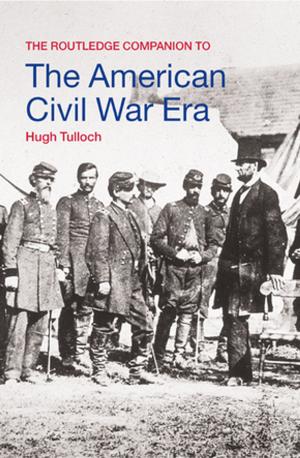Identity, Otherness and Empire in Shakespeare's Rome
Fiction & Literature, Literary Theory & Criticism| Author: | ISBN: | 9781351929028 | |
| Publisher: | Taylor and Francis | Publication: | December 14, 2016 |
| Imprint: | Routledge | Language: | English |
| Author: | |
| ISBN: | 9781351929028 |
| Publisher: | Taylor and Francis |
| Publication: | December 14, 2016 |
| Imprint: | Routledge |
| Language: | English |
Contributors to this collection delve into the relationship between Rome and Shakespeare. They view the presence of Rome in Shakespeare's plays not simply as an unquestioned model of imperial culture, or a routine chapter in the history of literary influence, but rather as the problematic link with a distant and foreign ancestry which is both revered and ravaged in its translation into the terms of the Bard's own cultural moment. During a time when England was engaged in constructing a rhetoric of imperial nationhood, the contributors demonstrate that Englishmen used Roman history and the classical heritage to mediate a complex range of issues, from notions of cultural identity and gender to the representation of systems of exchange with Otherness in the expanding ethnic space of the nation. This volume addresses matters of concern not only for Shakespeare scholars but also for students interested in issues connected with gender, postcolonialism and globalization. Drawing implicitly or explicitly on recent criticism (intertextual studies, postcolonial theory, Derrida's conceptualization of hospitality, gender studies, global studies) the essayists explore how the Roman Shakespeare of an emerging early modern empire asks questions of our present as well as of our past.
Contributors to this collection delve into the relationship between Rome and Shakespeare. They view the presence of Rome in Shakespeare's plays not simply as an unquestioned model of imperial culture, or a routine chapter in the history of literary influence, but rather as the problematic link with a distant and foreign ancestry which is both revered and ravaged in its translation into the terms of the Bard's own cultural moment. During a time when England was engaged in constructing a rhetoric of imperial nationhood, the contributors demonstrate that Englishmen used Roman history and the classical heritage to mediate a complex range of issues, from notions of cultural identity and gender to the representation of systems of exchange with Otherness in the expanding ethnic space of the nation. This volume addresses matters of concern not only for Shakespeare scholars but also for students interested in issues connected with gender, postcolonialism and globalization. Drawing implicitly or explicitly on recent criticism (intertextual studies, postcolonial theory, Derrida's conceptualization of hospitality, gender studies, global studies) the essayists explore how the Roman Shakespeare of an emerging early modern empire asks questions of our present as well as of our past.















